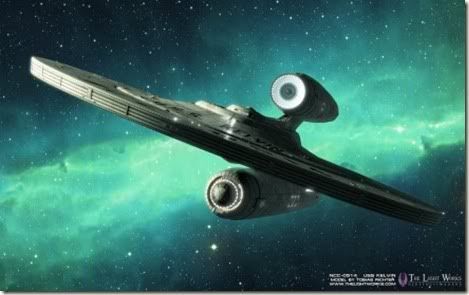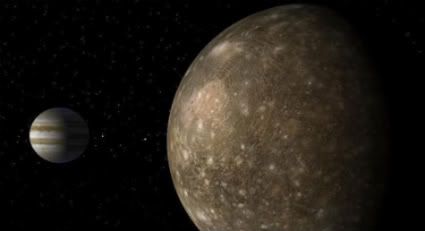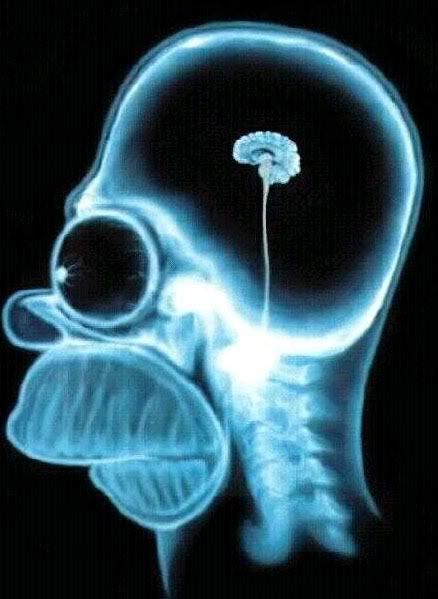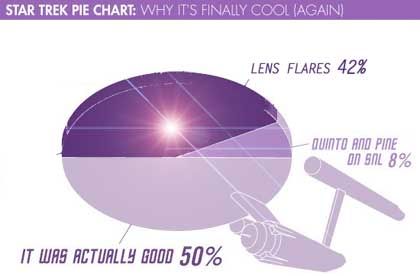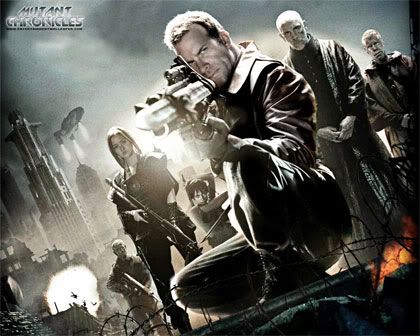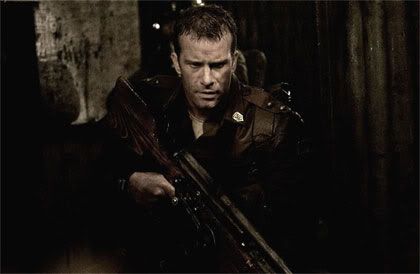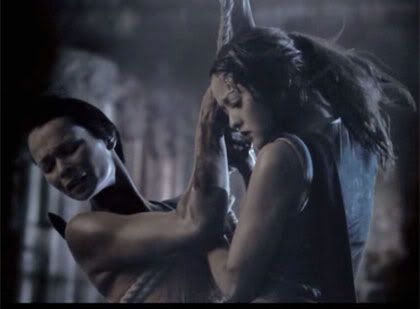
This might be my inexperience with Hollywood talking, but I think a lot of pitches to studio execs or producers go in this direction:
“So check out my new script, for the next Adventures of Captain Spanky! Captain Spanky flies out to meet the Naughticans, a race of hot alien babes bent on subjugating the galaxy! It’s full of space battles, intergalactic sex and plenty of jokes to keep people laughing!”
“Awesome! Here’s $100 million for your movie! Don’t spend it all in one place, now! Just let me know when it’s done, I’ll be sitting here chomping on my cigar.”
I’d like to think that, on occasion, it goes more like this:
“So check out my new script, for the next Adventures of Captain Spanky! Captain Spanky flies out to meet the Naughticans, a race of hot alien babes bent on subjugating the galaxy! It’s full of space battles, intergalactic sex and plenty of jokes to keep people laughing!”
“Sounds fun. What’s it about?”
“Um… it’s about the hero blowing things up and having sex with space babes?”
“That’s the plot, but what is the story about?“
At this point the ‘screenwriter’ tries to figure out what the script is actually about and ends up going home to nurse a bottle of cheap vodka or takes his script to the first producer I mentioned. Then again, maybe that’s just my imagination running away with me. In any event, making sure something you write is actually about something tends to make it more powerful, better realized and, in the end, successful.
Themes
Moby-Dick is, on it’s surface, about a whaling ship. But Melville wasn’t just writing about a bunch of guys trapped on a boat at sea dealing with a giant white sperm whale. He writes about obsession, religion, racism, sanity and politics, just to name a few. There’s a reason a long work about whales is considered a classic – there’s more to it than whales and harpoons. Obviously, not every story is going to be Moby-Dick. And some stories might be a little heavy-handed in how they convey their theme or message. District 9 was pretty blatant in its treatment of South Africa’s apartheid, but showed us that humans are still as xenophobic as ever. I haven’t seen Avatar but I hear it couldn’t be a more obvious pastiche of previously tread ground if it were fully animated and called Pocahontas. OH WAIT.
Anyway, what I’m driving at here is that under the dialog and action in stories like these are themes that work as both foundation and soil for the story. The theme shores up the other elements of the story by ensuring they’re connected, and it also allows the characters, action and drama to grow organically from it, rather than appearing out of nowhere.
Characters
Sometimes a story can get away without having a major overarching or underlying theme. Sometimes, instead of the characters growing from the theme, the theme grows from the characters. If they are interesting, smart or funny enough, ideally a combination of all three, the themes manifest themselves as the characters develop.
The legend of Faust tells the tale of a man who makes a deal with the devil to gain knowledge. This story can go any number of ways based on which direction you want to take the character. The theme or themes, be they damnation or redemption or victory over a conniving supernatural force, come out of the character’s growth rather than existing from the beginning. Iron Man, as a more modern example, doesn’t start out with a major theme, but rather with a character: Tony Stark. Eventually we see the themes of responsibility, redemption and innovation come into play over the course of the story, but it begins with Tony sitting in the back of a Hummer, listening to AC/DC and nursing his scotch. You won’t always come up with a strong central theme in this manner. 2009’s Star Trek does deal on some levels with young men overcoming the adversity of their pasts, but for the most part is a study of established characters in an altered situation. As these characters are rich and nuanced in and of themselves, their presence and interplay can drive a story without needing to focus on a central theme. However, a theme does add strength to a character driven story. I can’t think of a better example in Star Trek than Wrath of Khan, which ties back into my Moby-Dick reference.
See what I did there? Underlying theme.
Spectacle
Unfortunately, not every writer is looking for either a strong theme or interesting characters. Sometimes you just want a vehicle to follow a trend or attract an audience with shiny things. I tend to rag on Dan Brown and Stephenie Meyer a great deal. Sure, Dan Brown’s books can be entertaining and Ms. Meyer’s popularity rivals that of J.K. Rowling a few years ago. But monster truck rallies are entertaining too, and they’re not ‘about’ anything other than big vehicles smashing little ones. Dan Brown’s work is a lot like an intellectual monster truck rally, in point of fact: take Fibonacci, cryptography, speculative historical tales and pseudo-scientific terms, paint them on the sides of wrecked cars, then drive over the cars with a truck bearing huge wheels and a big banner on either side saying THE CATHOLIC CHURCH IS EVIL. Ms. Meyer’s is more like a normal track race, in that the pretty Bella Swan car is getting chased round and round by the sparkle-ridden Edward car and the fur-covered Jacob car for lap after lap until one of them spins out of control and the whole thing collapses into a twisted wreck.
Sure, it’s fun to watch. But what is it about?






